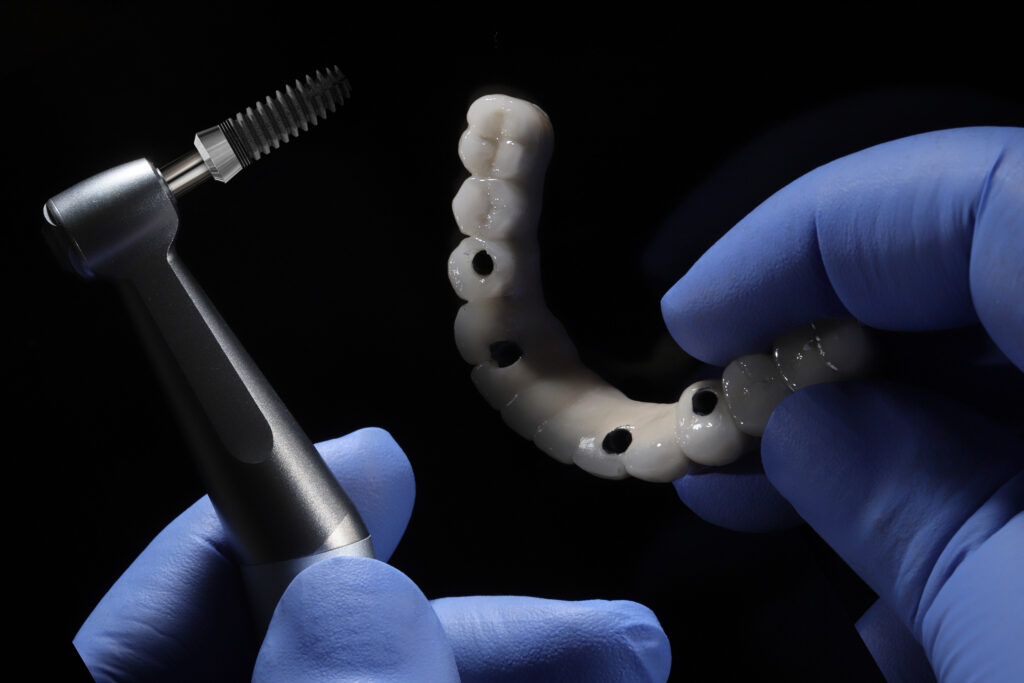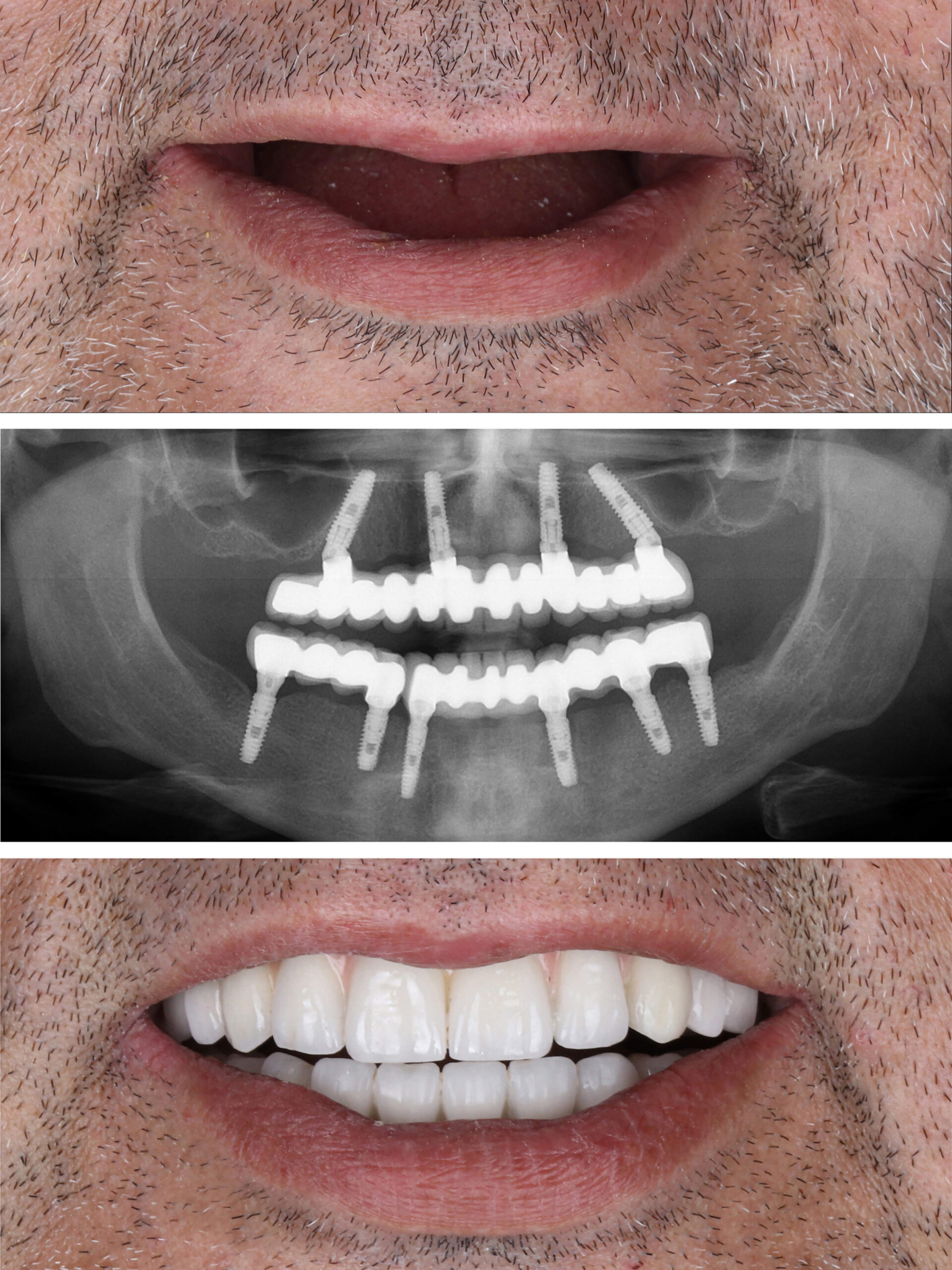
The field of oral surgery includes procedures such as the removal of impacted wisdom teeth, cyst removal, apicoectomies, implants, gingivoplasty, and more. The dentist24 clinics are staffed by doctors with extensive experience in maxillofacial surgery.
Εμφυτεύματα
Dental implants are one of the most effective and long-lasting solutions for replacing missing teeth. These are artificial tooth roots, usually made of titanium, that are surgically placed into the jawbone. Artificial crowns are then placed on top of these implants, which look and function like natural teeth.
Advantages of Dental Implants
- Long-Term Solution: Implants can last for many decades, and with proper care, they are often maintained for a lifetime.
- Natural Aesthetics: Dental implants offer a very natural look and feel, as they function like natural teeth and are indistinguishable from them.
- Bone Preservation: When a tooth is missing, the jawbone may begin to recede. Implants stimulate the bone and help prevent bone loss.
- Stability and Functionality: Implants provide stability and do not slip or move, as can happen with some dentures. This makes them ideal for chewing and speaking.

Veneer Placement Process
The process of placing dental implants typically involves the following stages:
- Assessment and Treatment Planning: The dentist or oral surgeon evaluates the condition of the jaw and the patient's oral health to ensure they are suitable for implants. X-rays or a CT scan are required.
- Surgical Procedure: The implant is placed into the jawbone through a small incision that is made under topical anesthesia. After placement, time is needed for the implant to integrate with the bone, a process called osseointegration, which may take a few months.
- Crown Placement: Once the implant has fully integrated, a dental crown is placed on top, which looks and functions like a natural tooth. In some cases, if conditions allow or if aesthetics are a priority, crowns can be placed within the first week after implant placement, a procedure known as immediate loading.
Implants can be used to support single teeth, bridges, or to stabilize dentures.
Care and Maintenance
Dental implants require the same care as natural teeth. It is important to maintain good oral hygiene, brush your teeth twice a day, use dental floss, and have regular dental check-ups.
Conclusion
Dental implants are an excellent option for restoring missing teeth, offering a natural, functional, and long-lasting result. They are a solution that can significantly improve quality of life and confidence, allowing people to chew, speak, and smile comfortably.
